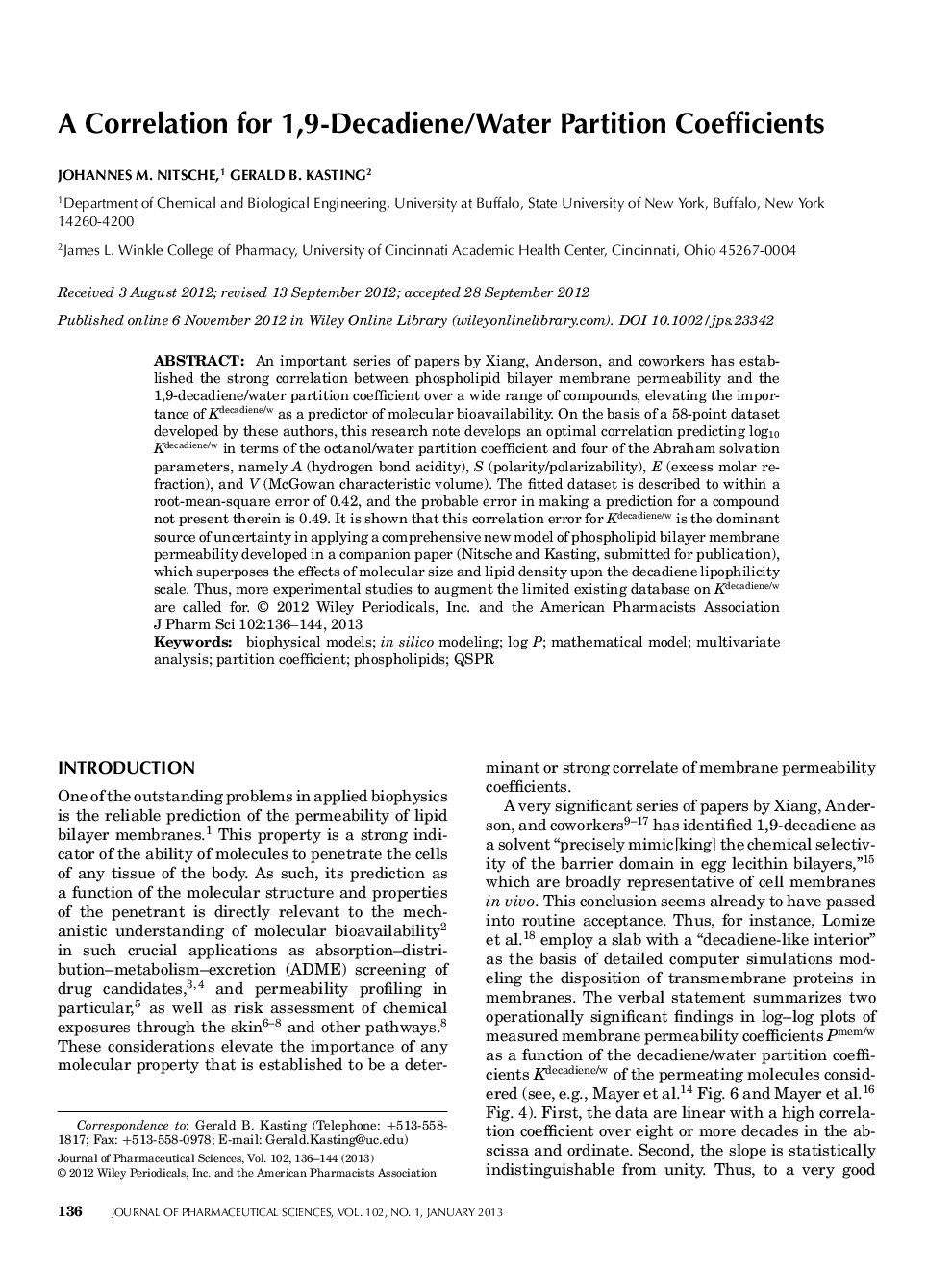| Article ID | Journal | Published Year | Pages | File Type |
|---|---|---|---|---|
| 2485445 | Journal of Pharmaceutical Sciences | 2013 | 9 Pages |
Abstract
An important series of papers by Xiang, Anderson, and coworkers has established the strong correlation between phospholipid bilayer membrane permeability and the 1,9âdecadiene/water partition coefficient over a wide range of compounds, elevating the importance of Kdecadiene/w as a predictor of molecular bioavailability. On the basis of a 58âpoint dataset developed by these authors, this research note develops an optimal correlation predicting log10Kdecadiene/w in terms of the octanol/water partition coefficient and four of the Abraham solvation parameters, namely A (hydrogen bond acidity), S (polarity/polarizability), E (excess molar refraction), and V (McGowan characteristic volume). The fitted dataset is described to within a rootâmeanâsquare error of 0.42, and the probable error in making a prediction for a compound not present therein is 0.49. It is shown that this correlation error for Kdecadiene/w is the dominant source of uncertainty in applying a comprehensive new model of phospholipid bilayer membrane permeability developed in a companion paper (Nitsche and Kasting, submitted for publication), which superposes the effects of molecular size and lipid density upon the decadiene lipophilicity scale. Thus, more experimental studies to augment the limited existing database on Kdecadiene/w are called for.
Keywords
Related Topics
Health Sciences
Pharmacology, Toxicology and Pharmaceutical Science
Drug Discovery
Authors
Johannes M. Nitsche, Gerald B. Kasting,
